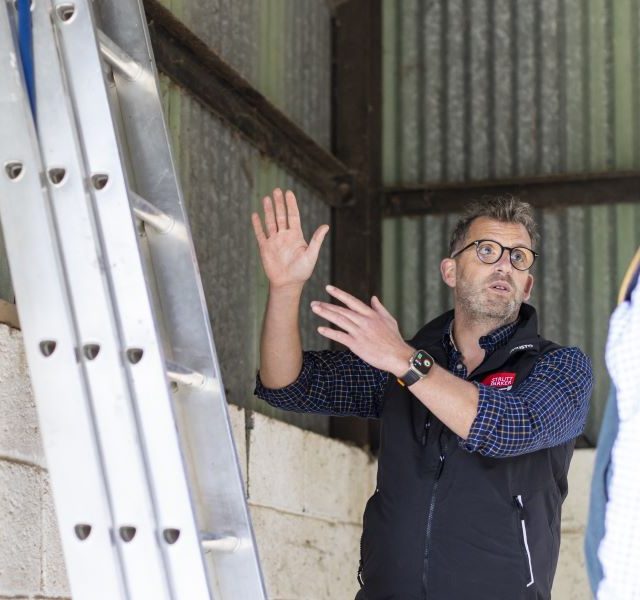Land Business Update | Week Commencing 15th May 2023
FARMING AND FOOD
Government goes back on Food Strategy promise to produce horticulture sector strategy
The government will not produce a strategy for the horticulture sector as it is reported as saying that it is more focused on delivering actions to support the sector. The UK has exceptionally low self-sufficiency in fruit, vegetables and plant production, and the risks of empty food shelves from relying on imports from countries already facing severe climate change and environmental issues are already apparent. S&P comment: this feels like a disappointing U-turn in terms of long-term thinking and the reason given, of focusing on delivery, feels weak. It follows other hard-to-understand changes, including a two thirds cut to promised capital investment in infrastructure for walking, wheeling and cycling, despite the government still having a target for 50% of journeys in towns and cities to be walked or cycled by 2030.
British Quality Wild Venison standard for wild venison launched
The scheme aims to boost consumer confidence in venison and support the sustainable management of wild deer. It is aimed at those producing and dealing with large quantities of venison, and there is also a scheme for groups of deer managers. It covers England, Wales and Northern Ireland as Scotland already has a scheme. The scheme sets a number of standards that producers (deer stalkers and managers) and processors (Approved Game Handling Establishments) have to adhere to. It was developed by and is supported by a wide range of stakeholders, from shooting organisations to the Forestry Commission. The expectation is that not all producers and processors will become members but that, if they do, then a premium will develop for assured venison.
Farmer confidence at three-year low due to high costs of production
88% of farmer respondents said that they are being negatively affected by input costs such as energy, fuel and fertiliser, according to a NFU survey. Please contact Jonty Armitage, our head of farming, if you would like to discuss your costs of production.
Defra’s computer systems a risk to delivery, says PAC
The Public Accounts Committee has called Defra’s core computer systems ‘outdated, inefficient, expensive, and at constant risk of failure or cyber-attack’. The Committee warned that the systems could pose a threat to achieving the department’s targets due to the inefficiencies and risks they create, and called for a complete overhaul and a strategic plan to do so.
Dutch scheme approved to cut nitrogen deposition on nature conservation areas
This is interesting, and controversial, as it pays farmers to permanently close livestock husbandry sites that are located within nature conservation areas (Natura 2000 sites) that are affected by substantive nitrogen deposition. The scheme has a €1.5bn budget and will make payments of up to 100% of losses.
ENERGY
Consultation on local partnerships for onshore wind in England
The government is consulting on how to improve the way in which communities and wind-farm developers can engage when an onshore wind site is proposed. The consultation also asks for ideas on whether the way in which communities can benefit from wind schemes that they host can be improved. It is one of the commitments made by the government in the British Energy Security Strategy, published in April 2022.
UK likely to miss target for solar energy installations
The government has been warned that it is likely to miss the target of hosting 70GW of solar by a considerable margin unless it takes action quickly. The Environmental Audit Committee has called for quicker action to remove barriers to installing solar, both at large scale and on houses and other buildings. One of the main concerns is the delay in providing grid connections for solar schemes; the Committee recommended giving Ofgem a net-zero objective and also greater collaboration between the government, National Grid and electricity distribution network operators to ‘unblock’ to delays. For small scale solar, the Committee called for more action on affordable loans and working with banks on solutions such as green mortgages.
Despite this, there has been some good news on renewable energy. Offshore wind farms set a new record in 2022 by generating enough electricity to power 41% of UK homes. More householders in the UK are installing solar panels. And construction started on the UK’s largest solar and battery plant in Kent, which could power 100,000 homes. (This last point may be good or bad news, depending on your point of view).
FORESTRY
Masterclass on woodland creation – 8th June, Surrey
The face-to-face meeting is being hosted by John Clegg & Co, our specialist forestry team, and the Forestry Commission near Farnham, Surrey. One of its objectives is to change the perception that woodland creation is a competing land use for food production, but instead can be a complementary diversification. It will cover agricultural benefits, grant support, biodiversity, timber income and carbon offsetting. To register for a free place, please click here.
Oak Processionary Moth management zone boundaries updated
Updated (bigger) management zones have been set to try to control the spread of Oak Processionary Moth (OPM) infestations. The moth’s caterpillars eat oak leaves, weakening the tree, and are also a health hazard to humans and animals. The caterpillars emerge in May / June, so the risk of irritation from their hairs is greatest now, before they turn into adult moths. The government has also imposed movement restrictions on oak trees with a girth of 8cm or more (or 2.5cm diameter), as these trees represent the greatest risk of spreading OPM. Please contact Hugh Williams if you would like to discuss OPM or other tree pests.
PLANNING
BNG rules appear to have been weakened in England
The government has issued guidance that appears to say that habitat required to comply with a statutory obligation or policy may be able to be counted towards the overall policy aim of 10% or more Biodiversity Net Gain (BNG). Examples cited include mitigation / compensation for protected species or sites, for example nutrient mitigation, and also green infrastructure and sustainable drainage. Please contact Jonty Rawcliffe, our lead on BNG, if you would like to discuss this.
RURAL ECONOMY AND PROPERTY
First upgrade to rural mobile coverage happening in Scotland
The government has said that the first upgrade to 4G coverage funded through the Shared Rural Network programme will happen in Lockerbie. It is the first of a £75m programme of 120 mast upgrades planned in Scotland to remove areas of poor coverage. In Scotland, the programme aims to increase 4G coverage from at least one operator to 91% of the area of Scotland (and to at least 74% coverage from all four operators, up from 44% at present). The UK government says that the programme is on target to hit its headline target of 95% of the UK’s landmass covered by 4G by the end of 2025.
Be tick aware
Ticks are active at this time of year and are a hazard as they can transfer serious diseases to humans and animals, including Lyme Disease and tick-bourne encephalitis. The UK Health Security Agency has produced detailed advice and information about being ‘tick aware’, which is useful for the health and safety of staff, visitors and animals. Please contact Gulliver Hedley, our Health and Safety Manager, if you have any questions.






